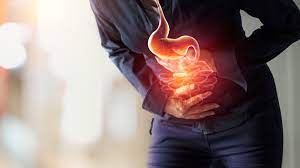Knowing The Symptoms Of Liver Disease Could Save Your Life
It is important to understand the role of our liver is in our daily lives. A healthy liver is vital for survival. Understanding when and what to do if it gets damaged, really could save your life.
Your liver is your biggest organ and gland, it aids with digestion and removing toxins before they can enter the bloodstream. It plays a crucial role in a number of body system functions.
The modern liver is very much under attack, with bad diets, GMO food, sedentary lifestyles and constant abuse from toxins in the environment, alongside the heavy reliance on medical science and enforced medication, like antibiotics and vaccines. All of these contributing factors mean that the modern day liver is under threat. And most of us only become aware of the damage, once its too late.
In a healthy adult, a normal liver will weigh somewhere between 3 to 3.5 pounds.
The most common cause of liver disease in North America is alcohol abuse. The final stage of liver disease (when the liver sustains severe scarring and cannot regenerate replacement tissue), is known as cirrhosis of the liver, and this is responsible for approximately 25,000 deaths per annum here in North America.
The functions of the liver
The key functions of the liver are to detoxify your blood and to enhance your digestive system, creating bile, which helps to break down the fats that you consume into small pieces, making them easier for your small intestine to absorb.
Here is a quick summary of the many other vital functions of the liver:
- Detoxes your blood, filtering out any harmful and unwanted substances, like drugs and alcohol
- Stores vitamins, iron and glucose
- It converts glucose into sugar that the body can use, when the body’s sugar levels become depleted
- Processes hemoglobin, insulin and a variety of other hormones
- Converts ammonia into urea, which is essential for the metabolism
- It eliminates old red blood cells, which produces fecal matter which is normally brown in color and is why when your stools are discolored (i.e. not brown) it can be an indication there is something wrong with your liver function.
Liver disease:
open next page to continue reading….




